MR. WEINGLASS: Can you tell the Court and jury your present age?
ABBIE HOFFMAN: My age is 33. I am a child of the 60s.
MR. WEINGLASS: When were you born?
ABBIE HOFFMAN: Psychologically, 1960.
MR. SCHULTZ: Objection, if the Court please. I move to strike the answer.
MR. WEINGLASS: What is the actual date of your birth?
ABBIE HOFFMAN: November 30, 1936.
MR. WEINGLASS: Between the date of your birth, November 30, 1936, and May 1, 1960, what if anything occurred in your life?
ABBIE HOFFMAN: Nothing. I believe it is called an American education.
Since I was 10, and maybe before, I’ve held very strong ideas about education. That was the year I came to Seattle, involuntarily, leaving behind not only my home town of West Lafayette, Indiana, but the private “free” school my mother had been a founder of.
As far as I was concerned at the time, Children’s Community School (CCS) was ideal. I was able to spend my time more or less as I wanted, though had I been fully consulted, I might not have spent any of it doing math speed tests or playing soccer. What I was able to do was complete my daily checklist at my own pace and in my preferred order, leaving the rest of my time free to choose what to do with.
The school was small and intimate, with about 30 students and three teachers at the peak. The school building was an old house that had been semi-converted via the magic of flat industrial carpeting and ice-cube-tray fluorescent ceiling fixtures into office space on the main floor. The second floor had rooms that were at various times rented for housing, though in my last year there, only one room was rented out, to a guy who wore too much cologne and didn’t really seem to like kids.
Despite the conversion, the building remained homey, with linoleum kitchen floors, a musty garage, and lots of leaded glass and dark, shiny wood. Outside, there was a sandbox, a climbing structure made of old pipes, some climbing trees, a huge concrete front porch, some old wooden piano boxes, and a perfect yard for playing Capture the Flag.
Describing this building, which even as I try to pin it down in words recedes from memory, reminds me that we live and experience the world sensually; we literally make sense of the world, so whatever else I was learning, I was learning the smell of SRA cards, the taste of burnt sugar candy from a mini-fair we held, the sound of the screen door banging, and the busy look of the big kids’ room, which I finally attained in my final year.
How much of this is education? What did I learn there? I learned that I preferred reading to almost all other activities, though being read to and told stories worked for me too. I learned French (counting, numbers, songs) and how to use a pottery wheel. I learned I preferred endless games like Three-Deep and Prisoner’s Base to games with scores and goals and stars, like soccer. I learned that math could be deeply satisfying to me while it made my friend Peter cry.
One reason I’m thinking about this right now is that my son is on the verge of graduating from high school. To earn a diploma, he must write, present, and defend the thesis that he is ready for the adult world; then his school community will take a vote, and if history is any indication, he will win the right to call himself a Clearwater School graduate. I’m dying to know what he’ll say in his diploma presentation, though I have heard him speak very eloquently about what he has learned by going to a school that is freer than any I’ve been to, less structured and yet more rule-bound, for the entirety of his career.
Last week I was at a parent chat, and when some parents compared Clearwater favorably to public schools, another jumped in to defend public schools. I, too, defend public schooling, and instead of comparing Clearwater to public school, I compare alternative school to mainstream or “regular” school. I was shocked after I moved to Seattle that people would think of alternative school as a last-ditch dumping ground, since to me it has always represented a choice, a choice to go there and a choice about choosing and individual learning and freedom of one kind or another.
I started writing this by saying I’ve always held very strong ideas about education, and one of the most important ones to me is the importance of being free to fail. That’s kind of a hallmark of the life I live every day, full of risk and trial and error and confusion. One thing I do know for sure: I’m getting somewhere and enjoying the trip. I hope everyone can have such an education.
